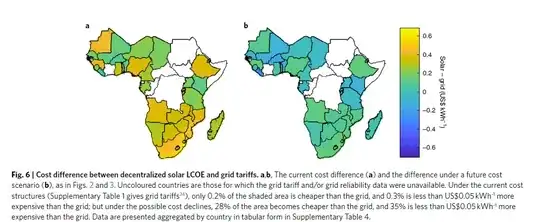Speaking at an energy conference in Moscow, Russia's president Vladimir Putin was critical of renewable energy. He seems to claim that it is a choice between fossil fuel driven economic development or renewable energy.
People in Africa and in many Asian countries want to be as wealthy as people in Sweden. How can this be done? By making them use solar power, which is plentiful in Africa? Has anyone explained the cost of it? [...] But is it an accessible technology for developing economies and countries? Hardly accessible. But people there want to live like in Sweden and nothing can stop them. Go and explain to them that they must live in poverty for 20-30 more years, as well as their children. Explain it to them. Overall, of course, we cannot but support the ideas of developing renewable energy sources. We just need to be realistic.
I would like to know if this is correct: does Africa have to choose between renewable energy or economic development? And would choosing solar panels really stagnate living standards for twenty to thirty years?
Considering that Russia is a major oil and gas exporter, it does seem convenient that their president is critical of the effectiveness of renewables. But that doesn't mean his claim is necessarily wrong.
